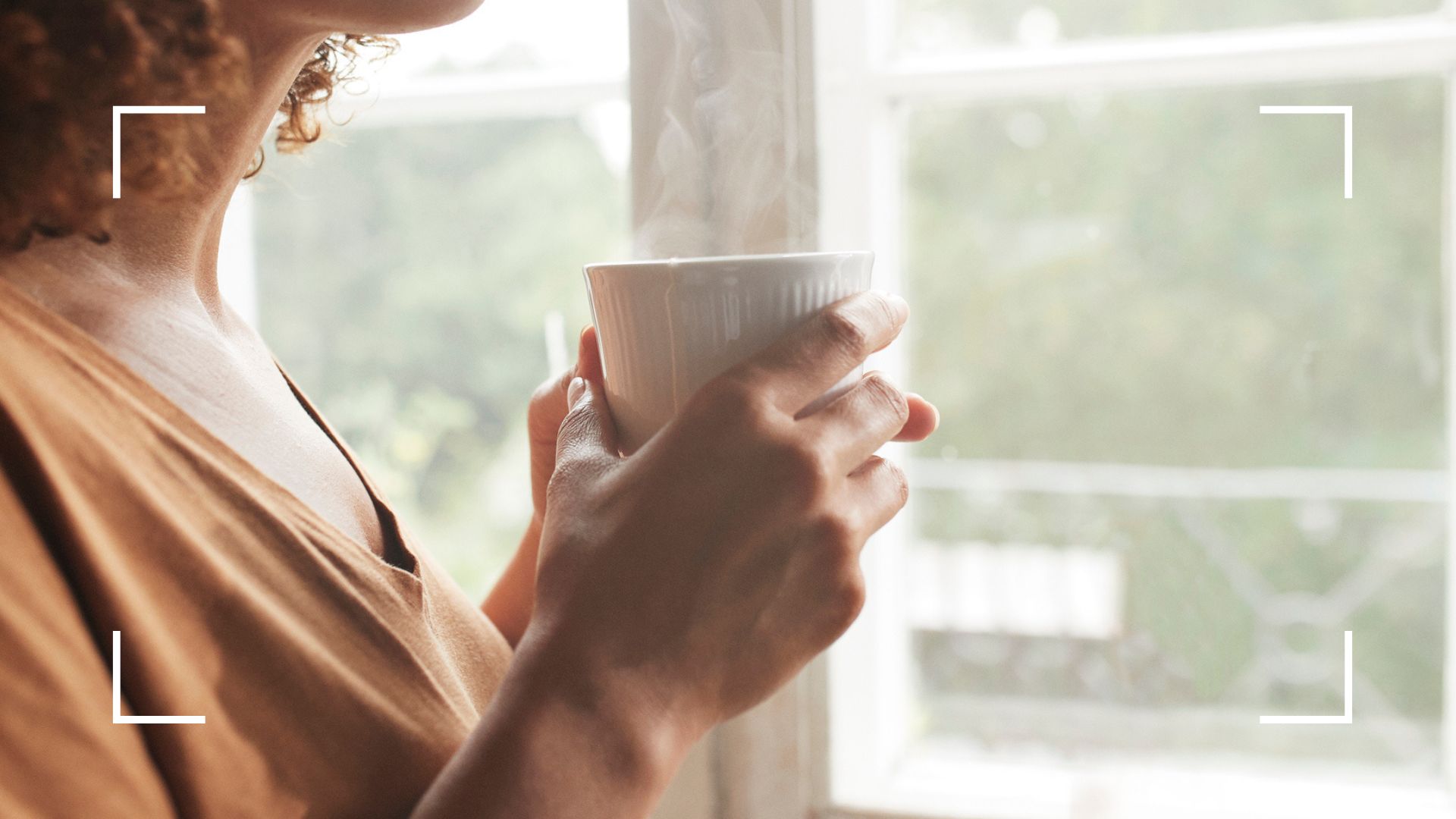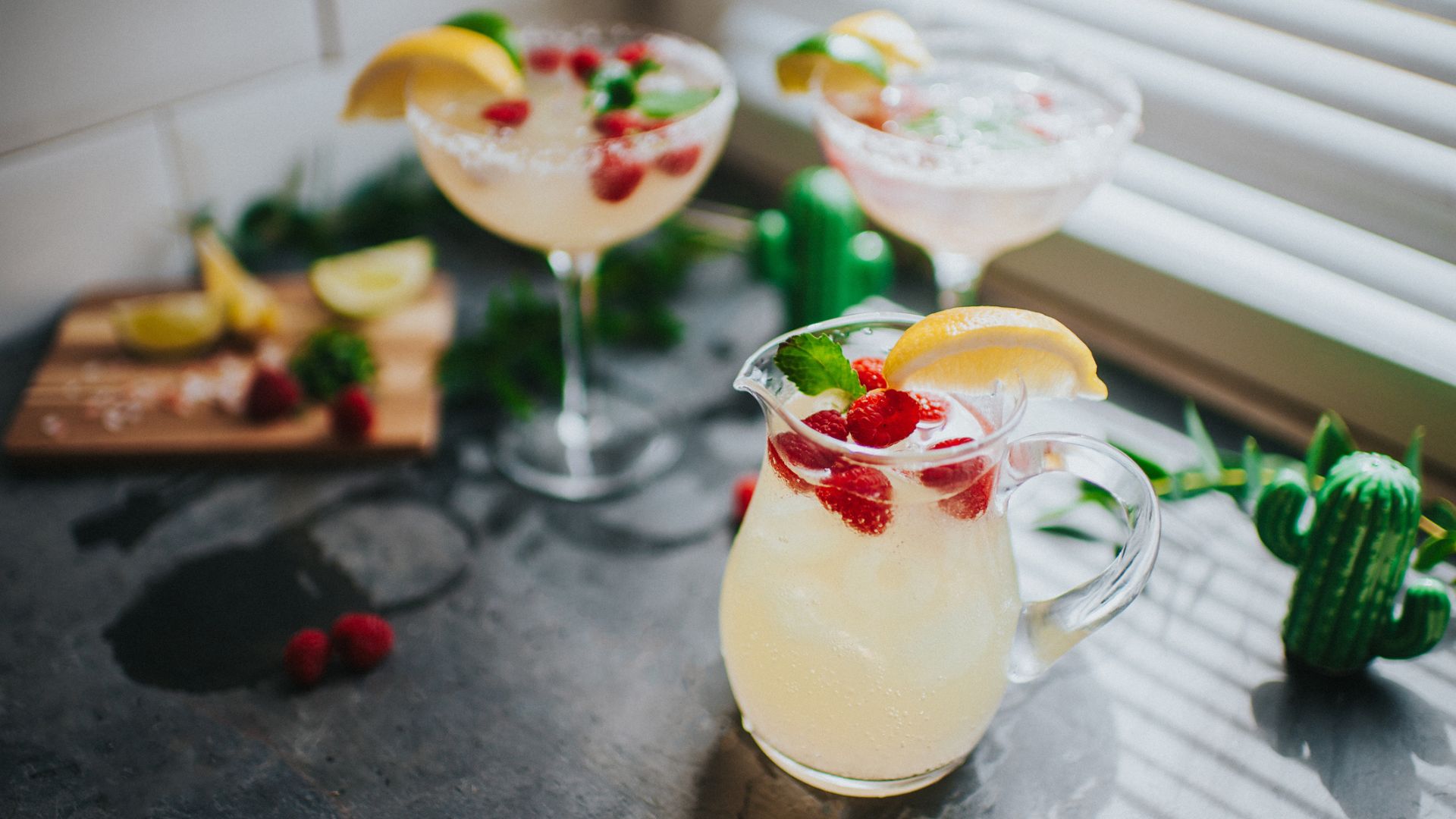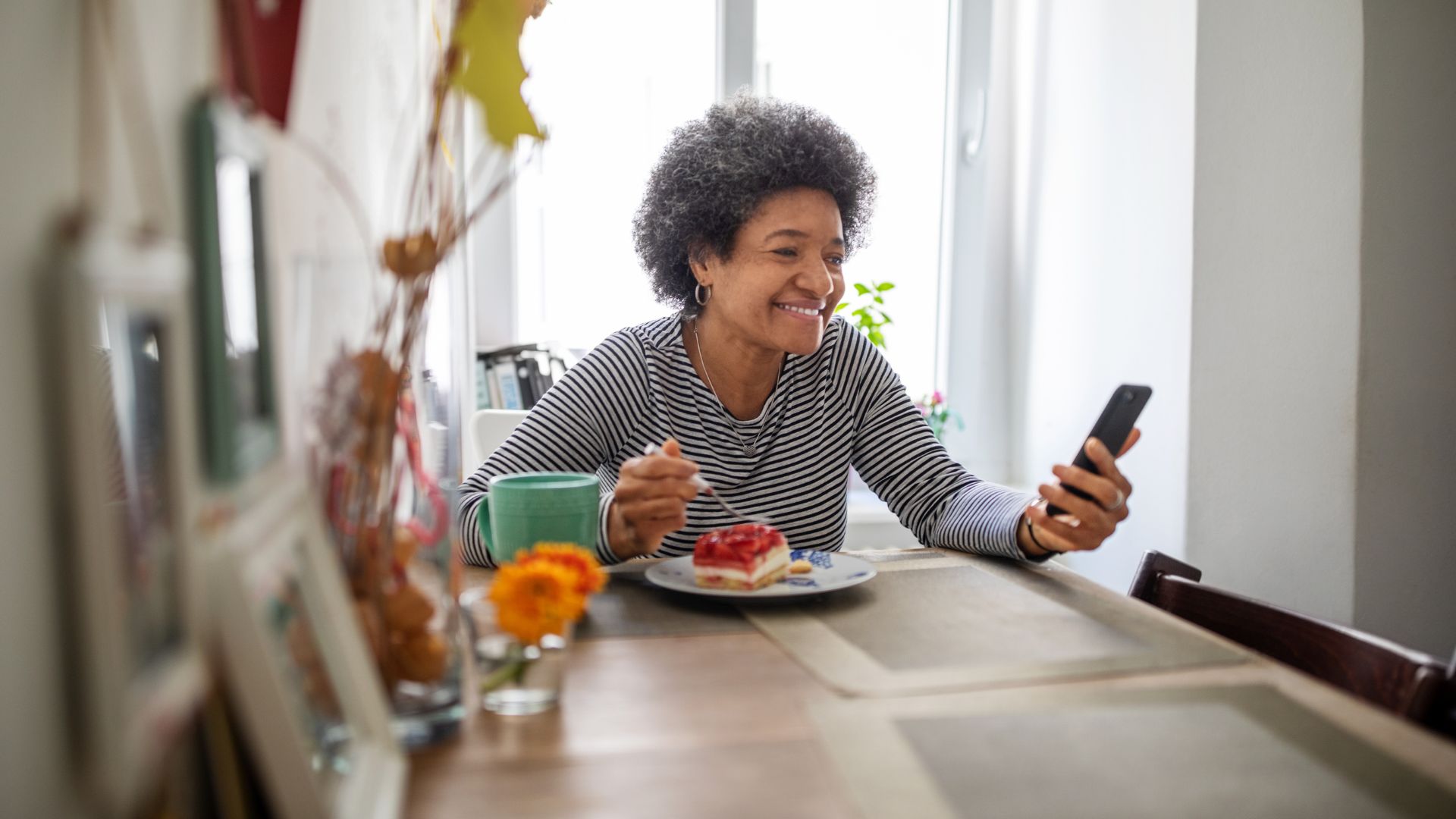Are you doing Sober October? These expert tips on how to avoid alcohol could make all the difference
Knowing how to avoid alcohol can be one of the biggest barriers to sobriety, here a psychiatrist reveals how to do it


Emily Smith
Want to know how to avoid alcohol in social situations without any awkwardness? Whether you're looking to ditch drinking in the long term or just for a few weeks to see how you feel, finding a way to sidestep questions and conversations about why you're not drinking can be one of the hardest steps to overcome.
We like to think that society has evolved enough to understand that you don't need alcohol to have a good time and that people give up drinking for different reasons, which not everyone wants to discuss. In some cases, that's true, and no one will bat an eyelid when you opt for a soft drink over a glass of wine. But unfortunately, that's still not the case everywhere and for everyone.
With tips from a psychiatrist specialising in addiction treatment, here woman&home reveals the top tips for avoiding alcohol both at home and outside if you're looking to see what happens when you give up alcohol. Plus, we offer suggestions for the top alternatives to alcohol you can try instead. If you are concerned about your drinking behaviour, seek advice from a professional.
How to avoid alcohol
1. Find a supportive group
The great thing about initiatives like Sober October and Dry January for those looking to cut down on alcohol is that there are bound to be other people you know doing it too. Many people find strength in numbers with this, says Dr Ryan Wade, a psychiatrist and the director of addiction services at Silver Hill Hospital.
"If you have a small group of people who are also maintaining sobriety, it can really ease the burden of attending social functions with alcohol, which can be a huge trigger," he says. "Having a friend or a group of friends sharing the experience with you can help you feel less alone and give you a sounding board for talking through when this process gets tough." You'll all be in it together and it'll be easier to learn how to avoid alcohol.

Dr Ryan Wade, MD is Director of Addiction Services and oversees Silver Hill Hospital’s Dual-Diagnosis Transitional Living Program. Addiction is a complex condition and Dr Wade is dedicated to helping his patients overcome their addictive disorder by providing the latest evidence-based treatment available, along with compassion and empathy. Dr Wade specializes in dialectical behaviour therapy (DBT), motivation enhancement therapy, acceptance and commitment therapy, and psychodynamic psychotherapy.
2. Share your progress with others
Social media, for all its faults, can be a great way to hold ourselves accountable for progress. Not only will the habit of posting about your process help you stay consistent but you may find a sober community of your own already out there to help you along.
“Using social media to post about your alcohol-cutting journey can be a great way to track your progress and hold yourself accountable,” says Dr Dave Nichols, an NHS GP and medical advisor at MyHealthChecked. “There are also plenty of groups and forums and other like-minded individuals with the same goals as you to connect with.”
Sign up to our free daily email for the latest royal and entertainment news, interesting opinion, expert advice on styling and beauty trends, and no-nonsense guides to the health and wellness questions you want answered.
Should you not want to publicise your alcohol-free journey online then simply talking to friends and family about your decision or plan is a great step to take, as mentioned. Even if they don't join you in the endeavour, at least there are no surprise conversations when you’re ordering a lemonade at the pub and they’re on the prosecco.

Currently working as a GP in Stockport, Dr Dave Nichols also works as a doctor for both international and national sports teams. He specialises in delivering medical advice that supports his patient's lifestyle choices and enhances their health outcomes.
3. Arrive late to social occasions and leave early
If you're serious about cutting back on your alcohol consumption or giving it up entirely then there are some parts of your life that may have to change to complement your new goals - and pretty quickly. Socialising is often the first one to change, especially if meeting up with friends revolves around having drinks together.
"The longer and more often we are exposed to alcohol and the opportunity to consume it, the more likely we are to 'give in' and have some," the psychiatrist explains. "Often when we arrive at social events, we greet people, catch up, and have more immediate conversations that can occupy our time. Then people typically start drifting to the bar or break off from a group to get a drink as the conversation dies down. So, if you come a little late to the party, there are plenty of people already there to talk with when you arrive. You can limit your time at an event where alcohol is being served and you can reduce the amount of 'downtime' or awkward pauses in conversation that might lead you to pursue an alcoholic beverage."
Leaving an event early offers the same opportunity, he adds. "Similarly, leaving the event early also limits all of this time, as well as getting out of the situation sooner as people tend to only become more intoxicated as the night proceeds, which may also trigger someone to be more likely to have a drink."

3. Try an alternative
However, this method might not be for everyone. Much like everything else, the way you cut back or give up drinking will be personal to you because your lifestyle looks different to someone else's. If you're regularly socialising, completely changing the way you socialise (while also giving up alcohol) may be too much change in too little time. Instead, you could try to find an alternative to alcohol that really works for you.
"One of the bigger difficulties in maintaining sobriety when attending events with alcohol is the sense of not feeling part of the party or not engaging in the same activities as everyone else. Oftentimes, people will feel more comfortable just having a drink in their hand when socialising with others who are consuming alcohol since they can be worried about being judged if they are perceived not to be drinking," says Dr Wade. For example, you could try one of the best non-alcoholic drinks in a can.
"If you are holding a beverage that appears to be a drink (i.e. sparkling water with lime, a Shirley Temple, etc.), you may find that you are less worried about fitting in than if you were holding, say, a bottle of water."
But the alternative you choose really matters here, he notes. "For those who have more difficulty regulating their intake of alcohol in general, it may be a good idea to choose a drink that is different from your typical drink of choice. A similar-tasting drink may produce cravings for consuming an actual alcoholic beverage as you are accustomed to doing." So, for example, if your normal drink of choice is a gin and tonic then perhaps sparkling water with lime will be a little too close to home.
4. Reduce your access
Day-to-day, the expert suggests limiting your exposure to alcohol or your opportunity to consume it. For those who drink every day, this means no alcohol at home at all. Not even tucked away in a cabinet somewhere for later.
"Having immediate access to alcohol increases the likelihood that you will break your sobriety and have a drink. Even the 20 - 30 minutes it may take to run to the liquor store or to have alcohol delivered to your home may be enough for you to realize what you are doing and recommit to sobriety. If you have a beer sitting in your fridge, that time to reconsider your desire to drink is essentially only seconds," says Dr Wade.
"Oftentimes, some of the simplest solutions, i.e. not having immediate access, can be the most effective ones to maintain a change in behaviour."
But that doesn't mean to have to stick to simple alternatives even though you're at home. "It may encourage you to get creative and try out some mocktail recipes," says Dr Nichols.
4. Find something else to do
Much like how taking alcohol out of the house can be a great way to learn how to avoid alcohol at home, taking yourself out of bars and pubs where you might be tempted to drink can help you out in public.
"You can plan sober activities and experiences with friends, giving you fewer events where you are exposed to alcohol and have to navigate any peer pressure. Both an internal sense of peer pressure and being offered alcohol by others," says Dr Wade.
This might mean going for coffee in the mid-morning instead of a drink after work, heading out on a walk with friends, or simply making a meal at home where the tipple of choice is a mocktail.
"Even those who don't have a strong pattern of alcohol consumption and those without cravings or urges for alcohol may still find it difficult to abstain for an extended period of time just based on what they are exposed to and what events they may be attending," says Dr Wade.

Why is it hard to avoid alcohol?
If you've taken on Sober October this year and you're finding it hard to avoid alcohol, you're certainly not the only one. There are many benefits of not drinking alcohol but giving up drinking isn't easy for many people who drink regularly, simply because alcohol is everywhere. "For those who have an alcohol use disorder, one of the more common features is having difficulty cutting down the amount or stopping use altogether. For those who don't typically engage in uncontrolled drinking, alcohol is still found often enough at social gatherings that it makes it difficult to escape even if you choose not to bring it into your own home," says Dr Wade.
In recent years, there's been a huge surge in the number of people interested in sober dating and alternative social ideas. However, despite the progress, that's still not the reality for most people.
"Many people going out on dates or meeting up with a friend for dinner will order an alcoholic drink with their meal," the psychiatrist says. "With alcohol being incorporated so frequently in these situations, it can seem difficult to avoid. People may feel left out not consuming alcohol while so many others are, which may produce a drive to consume alcohol even for those that don't have a physiologic urge to do so, or a consistent pattern of alcohol use."
What can I replace alcohol with?
- Kombucha
- Ginger beer
- Sparkling water with fruit
- Fizzy drinks
- No-alcohol spirits: Drinks resembling alcohol won't be for everyone but they can be a great option for those who still want the taste without the alcohol. Many well-known brands offer 0.0% versions of their popular spirits, including Sipsmith's Free Glider and Gordon's Alcohol Free Gin. It tastes almost like the real thing, so pair with tonic and a slice of lime as normal.
- Mocktails: Popular options include a Virgin Mary, Shirley Temple, or Arnold Palmer.
- No-alcohol beer: Lucky Saint, Days Brewing, or 0.0% versions of popular beers like Peroni and Corona are top-rated by us. Many of these also make the list of low-calorie beer options under 150 calories.

Grace Walsh is woman&home's Health Channel Editor, working across the areas of fitness, nutrition, sleep, mental health, relationships, and sex. She is also a qualified fitness instructor. In 2025, she will be taking on her third marathon in Brighton, completing her first ultra marathon, and qualifying as a certified personal trainer and nutrition coach.
A digital journalist with over seven years experience as a writer and editor for UK publications, Grace has covered (almost) everything in the world of health and wellbeing with bylines in Cosmopolitan, Red, The i Paper, GoodtoKnow, and more.
- Emily SmithDigital lifestyle writer